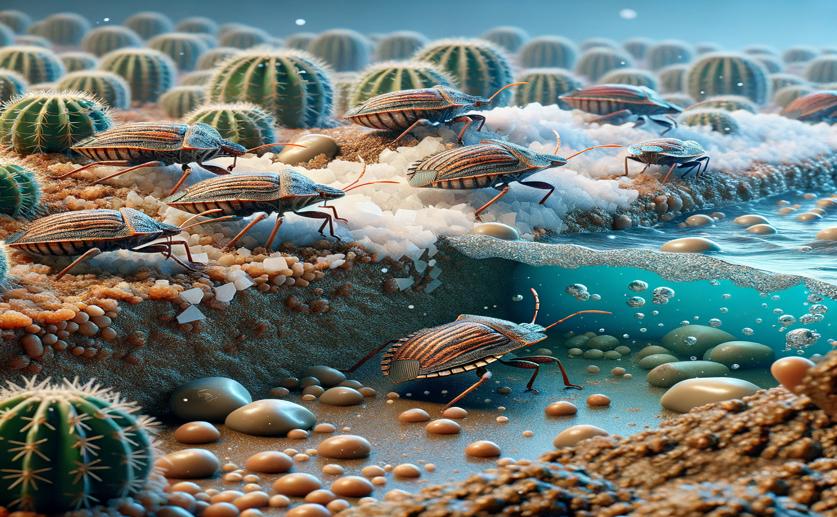
How Saltwater and Soil Quality Affect Freshwater Shredder Bugs
Jenn Hoskins
19th April, 2024

Image Source: Natural Science News, 2024
Key Findings
- Study conducted at the University of Coimbra on freshwater shredders, specifically Schizopelex festiva
- Salinity reduced fungal biomass on leaves, affecting shredders' food quality
- Shredders showed less growth and higher mortality in saline water
References
Main Study
1) Effects of water salinization and substrata quality on the performance of the shredder Schizopelex festiva (Trichoptera; Sericostomatidae)
Published 16th April, 2024
https://doi.org/10.1007/s00027-024-01077-8
Related Studies
2) Response of stream invertebrates to short-term salinization: a mesocosm approach.
3) Effects of repeated salt pulses on ecosystem structure and functions in a stream mesocosm.
4) Stream salinization and fungal-mediated leaf decomposition: A microcosm study.
5) Magnitude and variability of process rates in fungal diversity-litter decomposition relationships.



 16th April, 2024 | Greg Howard
16th April, 2024 | Greg Howard